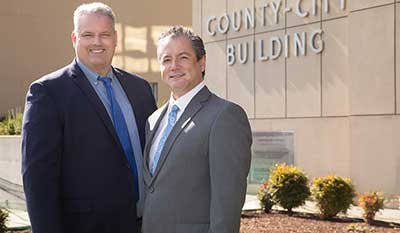
Tested by Trial, Trusted Advocates
Tacoma Criminal Defense Lawyers
Your Tacoma Criminal Defense Team
We practice in the criminal courts of Pierce, Thurston, Kitsap and King counties, equipped for any offense from drunk driving and misdemeanors to assault, domestic violence, weapon charges and major felonies. We regularly defend military personnel whose careers or gun rights are jeopardized and help non-citizens address the immigration consequences of criminal charges.
Your Tacoma Criminal Defense Lawyers
At The Law Offices of Smith & White, PLLC you have two veteran trial lawyers, a former law enforcement investigator and certified paralegals working the details of your case. Their skill and dedication consistently produces acquittals, dismissals and reduced charges.
We practice in the criminal courts of Pierce, Thurston, Kitsap and King counties. Our Tacoma DUI lawyers are equipped for any offense involving drunk driving. We also handle misdemeanors and assault, domestic violence, weapon charges and major felonies. As Tacoma criminal lawyers, we also regularly defend military personnel whose careers or gun rights are jeopardized and help non-citizens address the immigration consequences of criminal charges.
Criminal Law
Telling Your Story, Protecting Your Future
Telling Your Story, Protecting Your Future
We Can Help Today. Get A Free Consultation.
We Can Help Today. Get A Free Consultation.
Thousands Of Criminal Cases
Derek Smith
James White
Danely Bravo
Client Reviews
— Mike D.
— Steve B.
— Leyasha J.
— Melika
— Matthew B.
Client Reviews
— Mike D.
— Steve B.
— Leyasha J.
— Melika
— Matthew B.
Spanish Speakers On Staff
Spanish Speakers On Staff









